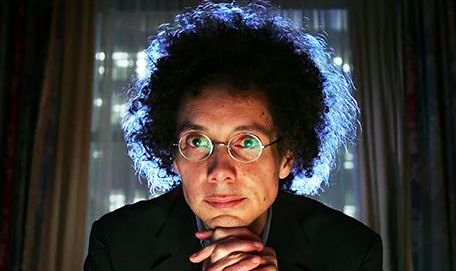Noa Rosenberg Here’s a joke: a billionaire and the former Secretary of State walk into a Presidential debate… The outcome? Questions are avoided, policy not discussed. It seems like a situation that would spur a goldmine of comedic responses; how could it not? In reality, while the responses have indeed been great in number, their quality and purpose seem to lack. Examples of modern political satire overall are more than easy to find. The Colbert Report and Tina Fey’s Saturday Night Live impression of Sarah Palin are just a couple. However, while hilarious, maybe they aren’t accomplishing anything. This is what Malcolm Gladwell argues in his podcast Revisionist History. In dissecting these well-known instances of satire, Gladwell discovers a sort of “paradox” in which comedians end up helping those that they try to take down. For example, when Sarah Palin guested on SNL next to Tina Fey, it arguably humanized her more than any purely political appearance could. There is nothing wrong with that, however, satire at its core is meant to use humor to make hard subjects and truths easier to digest. Instances like that are the equivalent of a political antacids. To put this all back in context of the election: take SNL’s coverage of this election cycle. Frankly, writers have had it made. Usually, work must be done to first turn candidates into characters (see: “Obama Plays It Cool” below). This time has been special in that Hillary Clinton and Donald Trump alike are both such caricatures of what they represent that it negates this step. So, what’s left? What are writers to do when an election is atypical: personal and (terrifyingly) funny? The internet has praised “no holds barred” impressions of Trump and Clinton by Alec Baldwin and Kate McKinnon. While hilarious, they favored laughs over change. I felt like I was just watching a dramatization of already ridiculous circumstances. We know Clinton really really wants to be President and is avoidant at times about the email scandal. We know that Trump is prone to making racist, sexist comments without thinking. My question is: why use the same strategies to satirize this rare, comedic election as more “boring” pure-policy ones? This isn’t satire, it’s closer to pandering. It is not revealing anything new to viewers, not making them think. It is clever, but not gritty. It’s the “lazy Sunday” of satire. Trump’s brash lack of a filter alone almost satirizes Hillary’s traditional campaign before writers’ pencils hit paper. Everyone has seen a Trump joke. Everyone has made a Trump joke. When the easy material is skimmed off the top by the public and even candidates themselves, comedians should capitalize on the opportunity to go deeper, to play to a more educated audience. Personally, I find this election scary (while I won’t state my reasoning here, you can guess why). That fear should be all the more reason for some good, risky, smart satire– the type that makes you think. That’s what this election has lacked overall: the ability to make people think. As it blurs the line between popular and political culture, none of the humor has been directed inward. We haven’t had to think about how we got here. Maybe we ought to. Check out Malcolm Gladwell’s podcast here: http://revisionisthistory.com/episodes/10-the-satire-paradox Here’s “Obama Plays It Cool”: http://www.nbc.com/saturday-night-live/video/obama-plays-it-cool/n12381 In addition, this is some harder hitting satire from Israel: https://www.youtube.com/watch?v=0DT4HtYQ8rE]]>
Categories:
Who’s Laughing Now?
November 2, 2016

1
0
More to Discover


























































lmccutch • Nov 2, 2016 at 7:48 pm
Amazing article! Very well written!